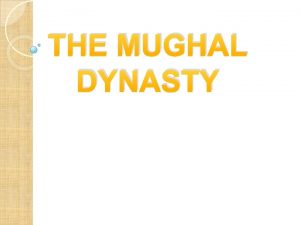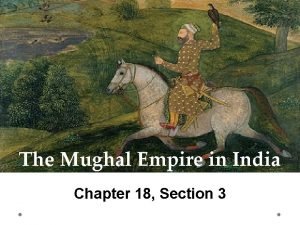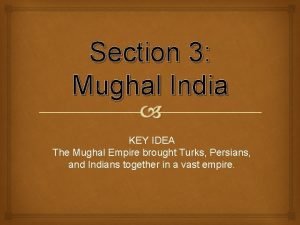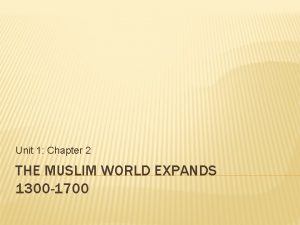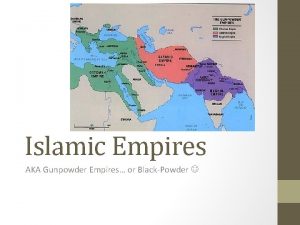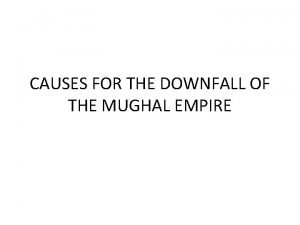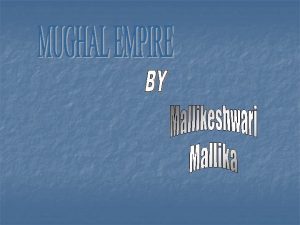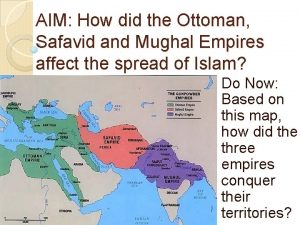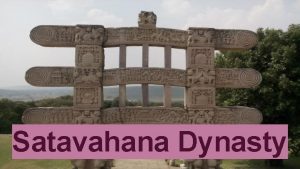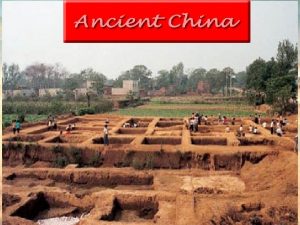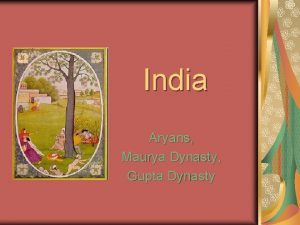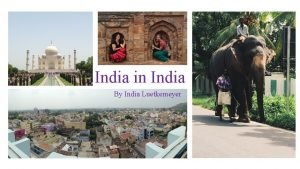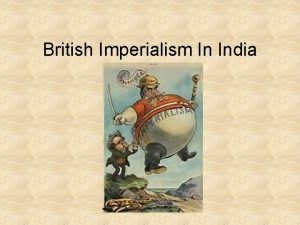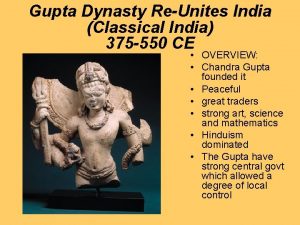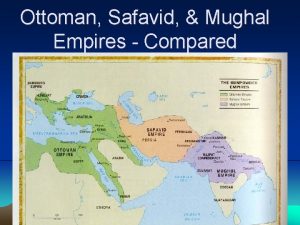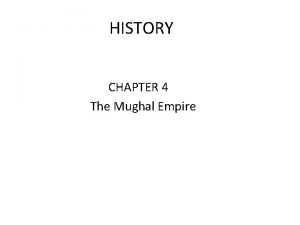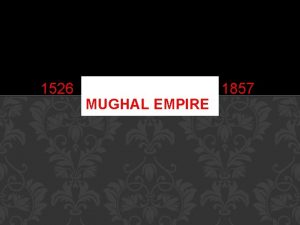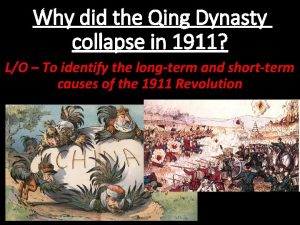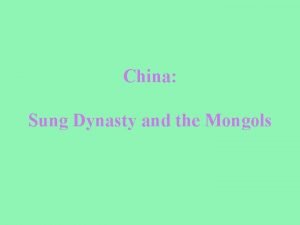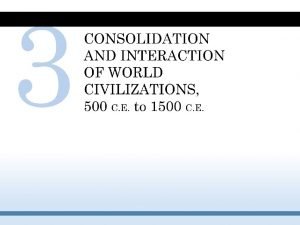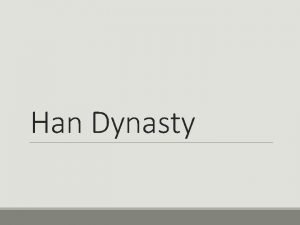Colonial India Mughal Collapse The Mughal Dynasty had


























- Slides: 26

Colonial India

Mughal Collapse The Mughal Dynasty had controlled India for centuries. By 1757, the Mughal Empire had collapsed. The empire was broken up into many small states.

The British East India Co. The British East Indo Co. began taking over large amounts of territory. Officially, the company took orders from London. In reality, the British let the company do whatever it wanted.

Monopoly The company kept order with its own private army made up mostly of Indians Soon, the company completely controlled the Indian economy. India could only do business with England.

The Jewel in the Crown India created a great deal of new wealth for the company India provided valuable resources like opium, coffee, indigo, and cotton. India also had 300 million people to provide a market for British goods.

The Big Picture 1) Opium is produced on Indian plantations. 2) The Opium gets traded in China for tea. 3) The tea gets traded for rum from the Americas. 4) The rum goes to India.

Well that seems like a easy, simple way to make a tremendous amount of money! Why did England ever stop doing this?

For every problem there is an answer that is easy, simple and dead wrong.

Triumph Motors. The early triumph motorcycles were among the best in the world. They were also the only bike sold in India. With no competition to beat, they got sloppy. When Britain lost their monopoly, Triumph could not compete.

The Upshot of Imperialism The British built the 3 rd largest rail system in the world in India. A modern infrastructure was put in place. Public services improved, and local warfare ceased almost entirely.

The Downside of Imperialism Most of the new wealth did not fall into Indian hands. Indian farmers were forced to grow cash crops, resulting in widespread famine. While Indian religion was tolerated, Europeans posed a real threat to Indian culture


British Social Class The British were placed themselves at the top of Indian Society. Indians were generally servants or staff Many Indians believed that the British might try to force British culture on them


The Sepoy Mutiny In 1857 a rumor spread that the new powder cartridge used by the Sepoy army contained beef or pork grease. The British jailed Indians who would not bite the new cartridges causing a year long rebellion.



End of Company Rule The failure of the East India Company caused British Government to take direct control of India. The British promised to honor all the company’s treaties, but ended up with much greater control of India.

The Raj is a term for the elite British ruling class in India. The Raj lasted from 1857 to 1947, and generally did not interfere with Indian Religion They still dominated society causing further mistrust among the Indians.





Rudyard Kipling was born into the Raj in Bombay, India. His writings depict both the good and bad that came from British rule in India. His own beliefs are unclear, but he remains the best expression of the Raj.

Recessional Far-called, our navies melt away; On dune and headland sinks the fire: Lo, all our pomp of yesterday Is one with Nineveh and Tyre! Judge of the Nations, spare us yet. Lest we forget - lest we forget! -Rudyard Kipling

 Mughal dynasty
Mughal dynasty Chapter 18 section 3 the mughal empire in india
Chapter 18 section 3 the mughal empire in india Chapter 18 section 3 the mughal empire in india
Chapter 18 section 3 the mughal empire in india First mughal emperor of india
First mughal emperor of india I have taken my breakfast
I have taken my breakfast I have my breakfast
I have my breakfast Where was the mughal empire located
Where was the mughal empire located First mughal emperor
First mughal emperor Gunpowder empires map
Gunpowder empires map Gunpowder empires characteristics
Gunpowder empires characteristics Where was the mughal empire located
Where was the mughal empire located The average zinc concentration recovered from a sample
The average zinc concentration recovered from a sample How did the ottoman safavid and mughal empires arise
How did the ottoman safavid and mughal empires arise Mughal empire 1450 to 1750
Mughal empire 1450 to 1750 Dowmfall
Dowmfall Mughal city planning
Mughal city planning Kerajaan mughal merupakan kelanjutan dari kesultanan
Kerajaan mughal merupakan kelanjutan dari kesultanan Birth of prince salim
Birth of prince salim How did the ottoman empire start
How did the ottoman empire start Millet system
Millet system 1761-1526
1761-1526 Ottoman safavid and mughal empire map
Ottoman safavid and mughal empire map Mughal era dance
Mughal era dance Hyatt regency walkway collapse bodies
Hyatt regency walkway collapse bodies Failure of supporting utilities and structural collapse
Failure of supporting utilities and structural collapse Which russian leader does snowball most resemble?
Which russian leader does snowball most resemble? Characteristic of medieval theater
Characteristic of medieval theater
